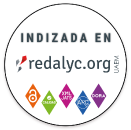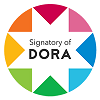Educational lesson classes at work: methodological proposal. Specialty in Family and Community Medicine. Term 2016-2017
DOI:
https://doi.org/10.37135/ee.004.03.02Keywords:
teaching, teaching care integration services, family practiceAbstract
The fundamental contradiction in the object of the didactic appears between the exigencies that the society raises in the education and the level reached by the students at a given moment during their learning process. The solution of this contradiction is the driving force of this process. This research work aimed to show a methodological proposal of Educational lesson classes at work in the training of the Specialist in Family and Community Medicine. The objectives of the syllabus are well established according to the academic period and modules, but the topics are not. In this sense, the thematic objective has been reworked taking into account its function: to achieve gradual transformations in the knowledge and skills systems acquired by postgraduates, as well as in their attitudes, convictions, feelings, ideals and values. Emphasis was placed on the use of problem and clinical methods in their didactic dimension. So, it was favored the current educational paradigm of learning to learn and learning by lowering the driving of the one who teaches. A system of teaching tasks was elaborated, which constituted a way of concretizing the object of study and in this way to stimulate the cognitive independence, creative individuality, integrity, conscious and active character. It was concluded that the assumption of this premise increases the teacher's responsibility to think in terms of the objective, thus; the resident may be able to learn from associations and generate his/her own ideas.
Downloads
References
Martínez-Sánchez E, et al. Propuesta de un sistema de habilidades clínicas en los escenarios de formación del Médico Integral Comunitario. Medisur. 2012; 10(2): 39-45.
Naranjo Ferregut Jorge Augusto, Delgado Cruz Amarily, Sánchez Pérez Yarelys. Programa de formación de especialistas en Medicina Familiar y Comunitaria en Ecuador con participación de profesores cubanos. Rev Ciencias Médicas [Internet]. 2015 Ago [citado 2018 May 27]; 19(4): 737-745. Disponible en: http://scielo.sld.cu/scielo.php?script=sci_arttext&pid=S1561- 1942015000400017&lng=es.
Salgado Ch, et al. Un cuestionario de estilos de enseñanza para el docente de Educación Superior. Rev Lasallista de Inv. 2013; 10(2): 62-68.
Vela-Valdés J, Fernández-Sacasas JA, Álvarez-Sintes R. Política de formación médica para la atención primaria de salud y el papel de la asignatura Medicina General Integral en el currículo. Edu Méd Sup. 2012; 26(2): 259-270.
Suárez-Guzmán N, et al. La comunicación en el proceso enseñanza aprendizaje en la especialidad de Medicina General Integral. Edumecentro. 2017; 9(1): 228-248.
Salas-Perea RS, Salas-Mainegra A. La educación en el trabajo y el individuo como principal recurso para el aprendizaje. Edumecentro. 2014; 6(1): 6-24.
Díaz Velis-Martínez E, Ramos-Ramírez R. Reflexiones orientadoras sobre la Didáctica Especial en las asignaturas clínicas. Edumecentro. 2013; 5(1): 30-46.
Abós-Catalán Á, et al. Variables motivacionales influyentes en una unidad didáctica de rugby: claves para la mejora de la intervención docente. Sportis. 2014; 1(2): 110-128.
Becerra-Hernández R, Moya-Romero A. Pedagogía y Didáctica Crítica Hacia la construcción de una visión latinoamericana. Rev Integ Edu. 2009; 2(1): 13-23.
Garí-Calzada M, et al. El problema de salud y su expresión docente como herramienta didáctica integradora para un diseño curricular. Edu Méd Sup. 2013; 27(3): 296-306.
Morales-Molina X, et al. Preparación de los docentes de las ciencias básicas biomédicas para una enseñanza con enfoque integrador. Edumecentro. 2012; 4(2): 43-50.
Franco-Pérez M. Elementos básicos para la orientación de contenidos en la Educación Médica Superior. Edumecentro. 2012; 4(1): 18-24.
Herrera-Miranda GL, Horta-Muñoz DM. La superación pedagógica y didáctica, necesidad impostergable para los profesores y tutores del proceso de especialización. Edu Méd Sup. 2016; 30(3): 461-472.



















